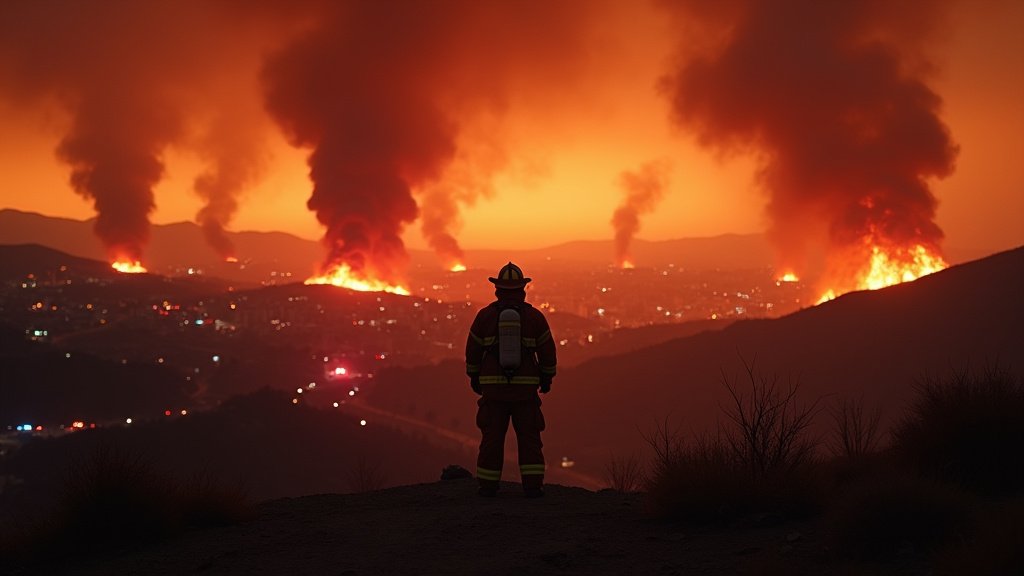LOS ANGELES, CA – Heightened immigration enforcement actions across California are imposing significant new pressures on the state’s diverse food industry, particularly impacting small businesses, food trucks, and farmers markets in the Los Angeles area. These intensified operations, linked to the Trump administration’s immigration policies, are leading to temporary closures, disruptions, and a palpable climate of fear among vendors and workers.
Reports from the Los Angeles area indicate that some food trucks, farmers markets, and small restaurants have temporarily ceased operations due to the fear and uncertainty generated by the raids. While some businesses have opted for closure, others are actively implementing protective measures aimed at safeguarding their employees. Simultaneously, fundraising efforts are reportedly underway to support those affected by the enforcement actions.
The Unseen Impact: Disruptions to Local Commerce
The impact extends deeply into the fabric of local commerce. Street vendors, a vital part of the urban food landscape in Los Angeles and surrounding communities, are reportedly going into hiding to avoid potential encounters with immigration agents. The fear has become so pervasive that it has prompted the cancellation of some scheduled food festivals and farmers markets, events that are crucial for local economies and community gathering.
This wave of disruptions arrives at a time when California’s restaurant industry is already grappling with a host of economic challenges. Businesses across the state have faced steadily increasing costs for essential ingredients, labor, rent, and compliance with various regulatory requirements. The additional strain introduced by the immigration enforcement actions exacerbates these pre-existing difficulties, pushing vulnerable businesses closer to the brink.
Pre-Raid Vulnerability and Current Fears
The sector’s vulnerability was evident even before the recent enforcement surge. According to a finding by the Los Angeles Times, over 100 well-known restaurants in Los Angeles closed their doors last year alone. This high rate of closure underscores the fragile economic environment in which many food businesses operate, making them particularly susceptible to new shocks like those currently being experienced.
The climate of fear is significantly affecting planned events and vendor operations. Brandon Mejia, who organizes the popular 909Tacolandia pop-up events in Pomona and San Bernardino, felt compelled to cancel his events last week. Mejia’s events typically feature over 100 vendors, many of whom are small independent operators. His decision was driven by profound concerns about immigration agents potentially targeting vendors at these gatherings.
These concerns were fueled by widely circulated social media videos. These videos reportedly depicted raids in Los Angeles and the neighboring Ventura County, showing taqueros (taco vendors), farm workers, and fruit vendors disappearing during these enforcement actions. The visual evidence and anecdotal reports have contributed to widespread anxiety within the vendor community, leading to the decision by organizers like Mejia to cancel events out of caution.
Economic Ramifications and Community Response
The economic ramifications of these disruptions are multifaceted. Beyond the immediate loss of income for vendors and business owners, the cancellations and closures impact local suppliers, event organizers, and the communities that rely on these businesses for food access and cultural vibrancy. The informal economy, where many immigrant workers are employed, is particularly hard hit, potentially leading to increased economic instability for families.
While the full extent of the current wave of enforcement actions and their long-term impact on the California food industry remain under assessment, the immediate effects are clear: reduced business activity, heightened fear among vulnerable populations, and increased pressure on an industry already navigating a complex economic landscape. The situation highlights the intricate connections between immigration policy, labor dynamics, and the health of local economies, especially in regions with large immigrant populations like Los Angeles and surrounding areas.
Efforts by some businesses and community groups to implement protective measures and raise funds represent a localized response to the challenges. However, the scale of the disruption, particularly the reported hiding of street vendors and the cancellation of established events, indicates a significant level of anxiety that is directly impeding economic activity and altering the daily lives of many involved in the region’s expansive food ecosystem.





